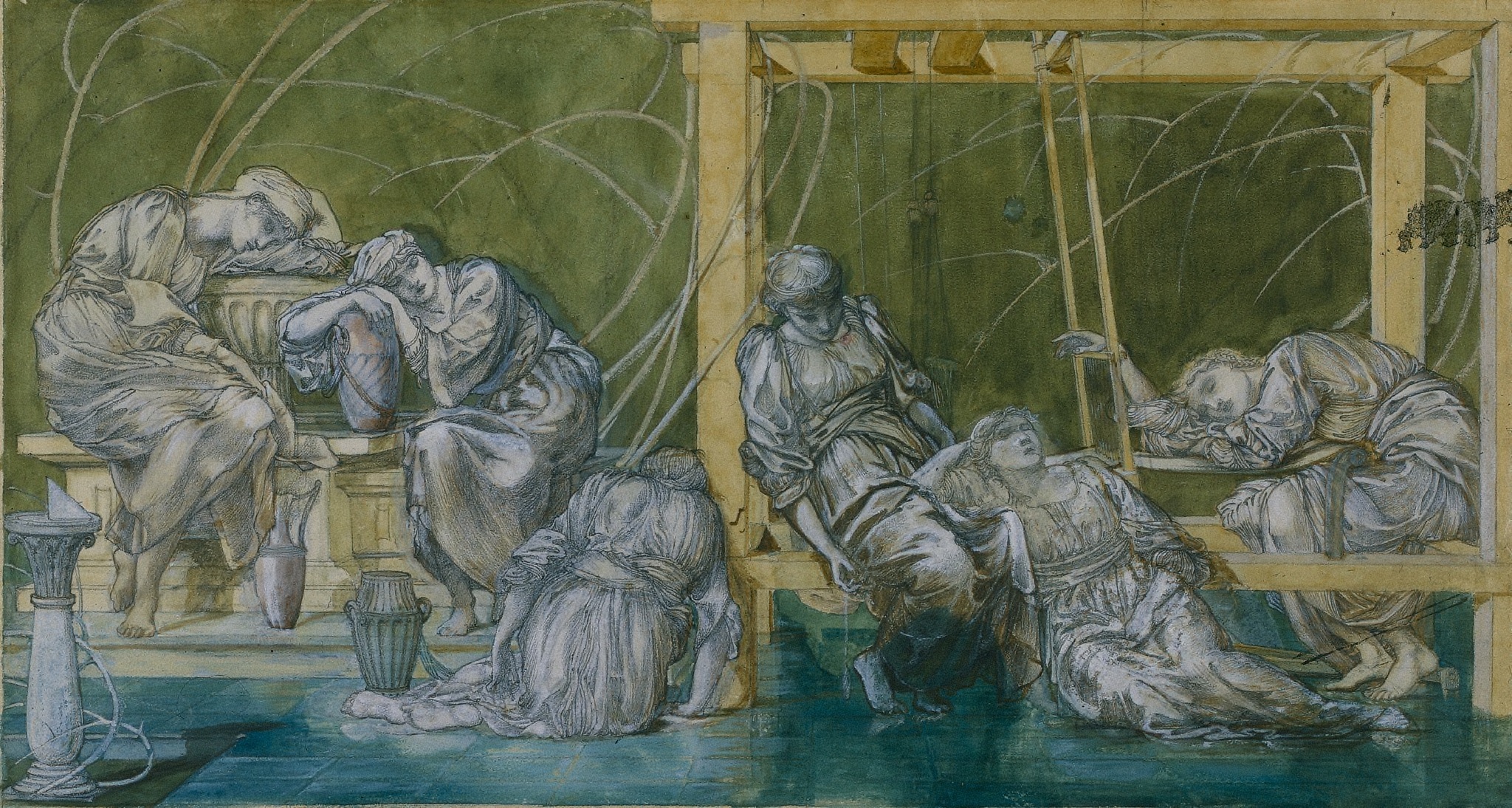PlotTwisting

Edward Burne-Jones: The Garden Court (1870–75)
" … the ability to fall apart into unanticipated constituent bits …"
©2022 by David A. Schmaltz - all rights reserved
The standard fairy tales seem anything but standard, for each story prominently features some barely believable PlotTwisting. What might have begun as a straightforward stroll to grandmother's house, invariably turns into something much more interesting and, frankly, barely believable, if believable at all. Wolves do not as a general rule wear a grandmother's clothing, even after swallowing her whole. They rarely consent to crawl into anyone's bed, let alone come inside, even to chide a remarkably innocent and gullible Little Red Ridinghood, who, remarkably, does absolutely no riding in the whole story, though in the story's final scene, she does manage to perform some major surgery—or is that an autopsy?—as she extracts whole and otherwise unharmed, though apparently unmentionably slimy, her previously swallowed grandmother from the wolf's belly. The whole story's allegory, twisting in an uneven wind.
Your story and mine are, if scrutinized, hardly any less believable than the least of Hans Christian Andersen's. They're probably best if told and heard with a discerning detachment, as if they happened to someone else, as if they were proposals rather than definitives, meanings fluid and details accepted just as presented. A listener's skepticism contributes nothing to either entertainment or understanding, and might well undermine the whole purpose of an otherwise intriguing story. Whether it amounts to a completely accurate depiction of truth, justice, or even The American Way will probably be beside some much larger purpose or point. Probably best to just accept that perhaps pigs can sometimes fly, rather than open up some fresh controversy as to why. Ultimately, whys detract. Suspending disbelief's almost always more appropriate.
Yet, not even I have yet grown terribly accustomed to the continuing PlotTwisting exhibited in my own story making. Even the ones I intend to be different than I at first envisioned, generally turn out to be different even from the difference I'd originally expected. One might think that I'd grown to avoid over-thinking and generally accepting where a story decides to lead me, but I have not. I'm still unsettled by the turns and twists, the curious discoveries, the stories that emerge within the stories once I started writing them. I might believe that it's the nature of ink to always track crooked, not to journalize but to fantasize. The tenacious belief that a straight story exists, that a story could somehow live independent of its own inevitable PlotTwisting, seems to be the source of much confusion. Stories seem to have minds of their own, minds which cannot be read so much as disclosed. The writer's job and responsibility might just be to follow the twisting pathway until the story manifests, not by authoring so much as by a dedicated openness to difference.
The resulting apparent exposition will not have been outlined before the author began writing. If the author attempted to outline, then he's very likely to find his backstory twisting back around upon itself while his primary focus, the story he's writing, does likewise. It's not transcription. It's not supposed to turn out as expected, not ever. The expectations serve as points of departure, exits from the known world into the realm of what might reasonably be called fairy tales. We are each at root largely fictional beings with prominent echoes and PlotTwistings. Every story was damned well destined to be different, explicitly not as expected, though nobody really seems to want to understand this. Mastery demands not dominion, but friability, the curious ability to fall apart into unanticipated bits and, as a result of this, manifest another in an endless series of PlotTwisting stories, this one just the latest example of this practice.


